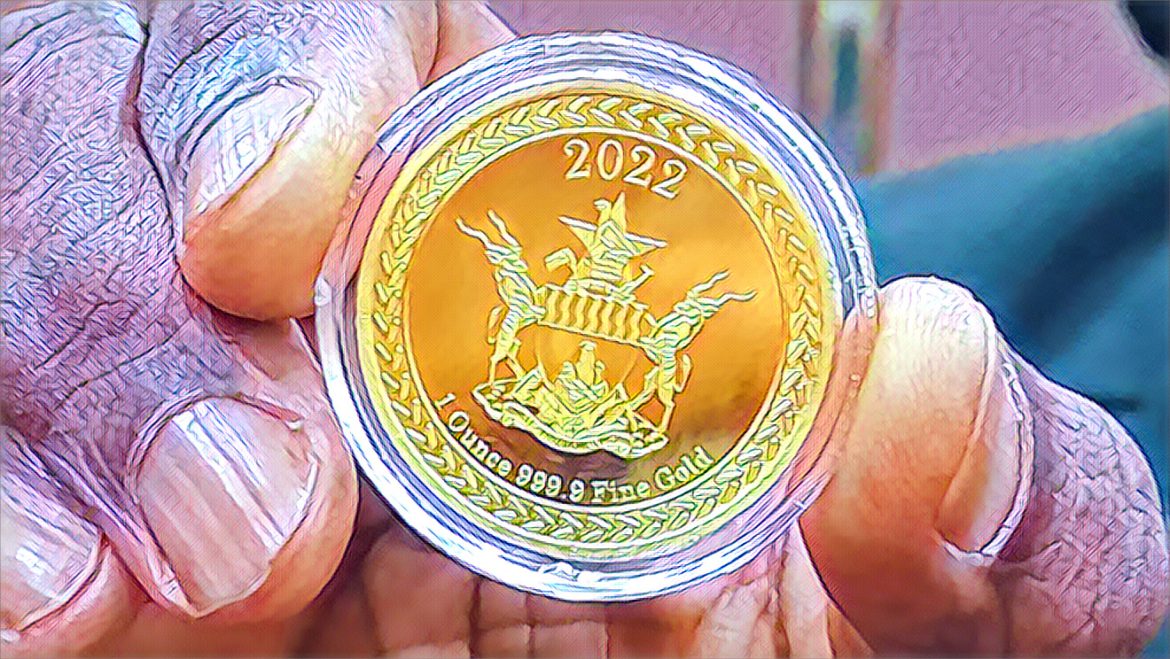Zimbabwe has launched a new digital currency backed by gold to boost its economy and provide an alternative to the US dollar and the local currency. The gold-backed digital tokens, or ZiGs, are issued by the Reserve Bank of Zimbabwe (RBZ) and can be used for peer-to-peer and peer-to-business transactions and investment purposes.
The RBZ said the ZiGs are derived from the value of gold reserves held by the central bank and will be audited by external auditors to ensure their adequacy. The tokens are issued in units of one milligram of gold, which was worth $377.77 or 6.14 US cents on Monday. The tokens have a vesting period of 180 days, after which they can be redeemed for local or foreign currency at the international gold price.
The RBZ said the ZiGs are meant to expand the value-preserving instruments available in the economy, enhance the divisibility of the investment instruments, and widen their access and usage by the public. The tokens have a prescribed asset status and are acceptable as loan collateral. They also have a lower intermediated money transfer tax than transactions in foreign currency.
The ZiGs are not a currency but an investment instrument that can be used for payments if both parties agree. They are not subject to inflation or exchange rate fluctuations, as they are pegged to the value of gold. They also offer a flexible and reliable hedge against value erosion in periods of inflation.
The RBZ said it had opened accounts for settlement by all participating banks on the Rapid Transfer Gross Settlement (RTGS) system, which will facilitate the transfer of ZiGs between accounts. Banks will also enable ZiG transactions on cards, point-of-sale machines, and online channels.
The introduction of ZiGs comes a year after Zimbabwe launched physical gold coins to stabilize its rapidly devaluing currency. The country has been facing economic challenges for decades, marked by hyperinflation, cash shortages, power cuts, and low productivity. The country uses both the US and Zimbabwe dollar for transactions, but the latter has been losing ground against major currencies.
Zimbabwe is not the first African country to experiment with digital currencies. Nigeria, Ghana, and South Africa have also introduced or planned to introduce digital currencies, either backed by fiat or cryptocurrencies. However, Zimbabwe’s gold-backed digital tokens are unique in their design and purpose, as they aim to leverage the country’s mineral wealth and attract investors.
The RBZ said it hopes that the ZiGs will help to mop up excess liquidity in the market and reduce demand for US dollars. It also said it expects that the ZiGs will increase financial inclusion and innovation in the country.
However, some economists and ordinary Zimbabweans have expressed skepticism about the new digital currency, citing previous failed attempts to introduce alternative payment systems in the country. They also questioned the availability and security of the gold reserves backing the ZiGs and their legal status and acceptance.
The RBZ said it will continue to monitor and evaluate the performance of the ZiGs and make necessary adjustments as required. It also urged the public to embrace and use the new digital currency responsibly.
Source: The Herald


